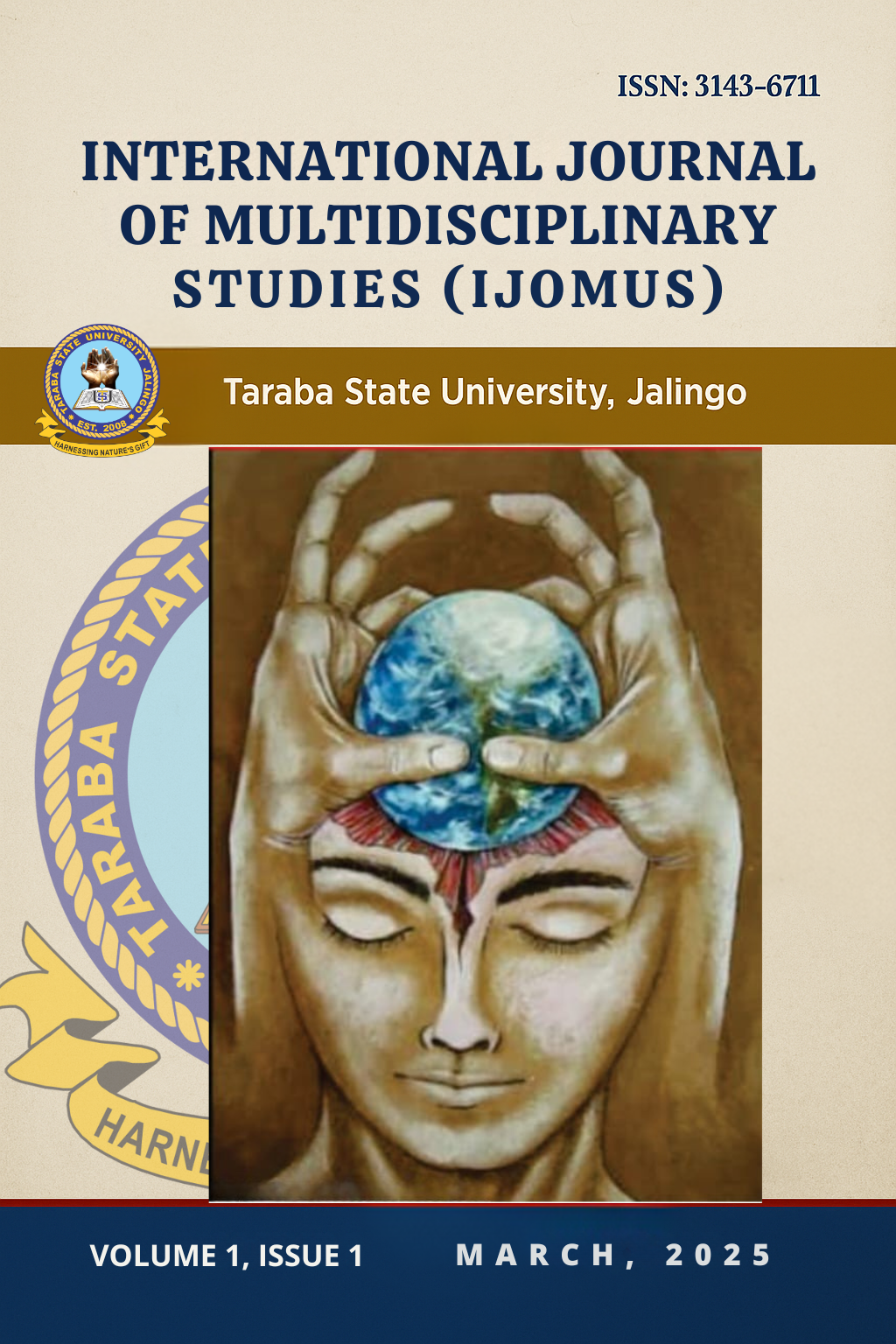CHILD LABOUR AND IT’S HEALTH IMPACT ON CHILDREN IN JALINGO LOCAL GOVERNMENT AREA OF TARABA STATE
Abstract
Child labour remains a significant socio-economic challenge, particularly in developing regions. This study examines the impact of child labour on children in Jalingo Local Government Area, focusing on its common forms, socio-economic drivers, and effects on education, health, and psychological well-being. Data were collected through structured questionnaires and analyzed using descriptive and inferential statistics, including regression analysis. Findings indicate that child labour is driven primarily by poverty, parental unemployment, large family sizes, and lack of access to quality education. The most prevalent forms of child labour in Jalingo LGA include street hawking, domestic work, shopkeeping, and farming, with farming being notably prominent due to the agrarian nature of the region. The study also highlights the negative consequences of child labour, including school absenteeism, poor academic performance, physical exhaustion, malnutrition, and psychological distress. Regression analysis confirmed that poverty had the strongest influence on child labour prevalence, followed by parental unemployment and family size. Based on these findings, the study recommends that parents prioritize children's education, the government enhance policies promoting economic stability and free education, and stakeholders engage in awareness campaigns and support programs to combat child labour.

